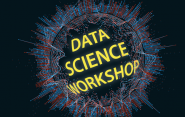Researchers Discuss Repurposing Their Work for COVID-19 at HASTE Data Workshop

Yale researchers discussed ways they have repurposed their work to address the COVID-19 outbreak at the third HASTE Data Workshop.

The workshop, held Tuesday over Zoom, featured speakers Mark Gerstein, Michael Rutenberg Schoenberg, and Jordan Peccia. The series, which is hosted by SEAS Dean and Dean of Science in the Faculty of Arts and Sciences Jeffrey Brock, brings together researchers from across numerous disciplines to present COVID-19-related research and discuss how members of the Yale community can contribute.
“We’re not a virology lab and didn’t immediately know what we could do that would be useful,” said Gerstein, the Albert L Williams Professor of Biomedical Informatics, Molecular Biophysics & Biochemistry, Computer Science, and Statistics & Data Science. But he added that he was inspired by a fellow researcher’s tweet that “it will be a molecule that will stop this virus.”
“That motivated me and the lab to think about what we could do because we have a lot of experience with molecules,” he said.

One potential area of research the research team is looking at involves contact tracing, a means of identifying people who have been exposed to someone who’s been infected.
“A hot topic in COVID-19 response has been contact tracing and the balance between its effectiveness for controlling the virus and damage to personal privacy,” said Schoenberg, a postdoctoral associate in Gerstein’s lab. “We've been over time interested in developing methods to sanitize biomedical data from identifying information and developing blockchains for robust data storage and security. We'd be very excited to see this kind of framework based on some of our methods or similar methods implemented to protect privacy in contact tracing efforts.”

Jordan Peccia, the Thomas C. Golden Jr., Professor of Chemical & Environmental Engineering, discussed some of the research that he’s been involved in since the outbreak. This includes his work in sampling local wastewater, which contains evidence of a number of pathogens and toxins. The research team is a collaboration that includes specialists from Engineering, Yale Epidemiology, the School of Management, the School of Medicine and others. Since March 19, it has been collecting daily samples from several wastewater sites in New Haven.
He’s also working with researchers at the Yale School of Public Health in repurposing wristbands designed to detect exposure to indoor airborne chemicals to detect the virus - which could help out in hospitals, where about 10,000 healthcare workers have been infected with COVID-19. Peccia noted that putting an air sampler inside a hospital is prohibitively difficult, but using wristbands would require minimal effort.

